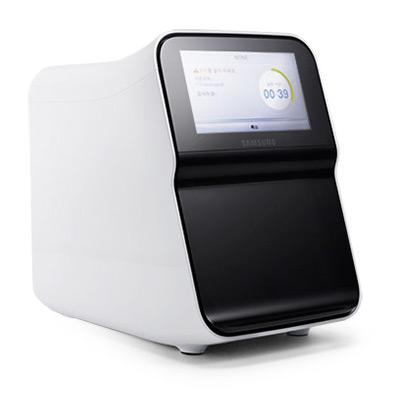Features
Frequently Asked Questions
Contact Us
If your question isn't answered here, why not send us a message instead? You can also email us at [email protected].

1. What is a Category M laboratory?
Information contained within the Approved Pathology Laboratory application form provides the definition that "Category M laboratories perform a limited range of pathology services under the direction, control and supervision of a medical practitioner, being services only for the patients of the medical practice operated by, or that employs, the medical practitioner, where the medical practice is co-located with the laboratory."
2. Which tests are we able to perform?
The Royal College of Pathologists Australia provide guidelines on the tests that may be undertaken within a Category M (medical) laboratory, which specifically include Point of Care Testing. Detailed information on the range of tests available using the mLabs system may be found here.
3. How does this help us claim Medicare rebates?
The Australian Government stipulates that a pathology service will attract Medicare benefits when performed by or on behalf of an Approved Pathology Practitioner (APP) within an approved laboratory, such as a Category M laboratory. In accordance with the Department of Health guidelines, a Category M laboratory may be operated by a qualified medical practitioner (the APP).
4. How is Medicare billed?
Because of a limitation with Medicare's systems (only one provider number per location), billing has to be undertaken using your existing clinical billing method or software. Full financial reports on the tests undertaken, Medicare item numbers to be claimed and the doctors who have ordered each test are available 24/7 online. Payments made to your lab can be manually reconciled back into the mLabs system, which provides you with a convenient way to monitor your labs financial performance.
4. How much does it cost to set up?
All of costs associated with establishing the laboratory (i.e. application and program fees) are initially paid on your behalf, so there are no set-up costs incurred by the practice. This amount is subsequently collected over the period of accreditation via a pre set monthly payment, which can be covered by the profits earned for performing the tests.
5. How much space do I need?
The space required to run mLabs depend on the number of tests that you'd like to offer. In general a computer and 1 – 2 meters of bench space is more than sufficient. The environment in which you perform testing is not formally assessed, providing it is adequate for the services being offered. The gold standard is outlined within National Pathology Accreditation Advisory Council Requirements for Medical Pathology Specimen Collection. If you'd like us to visit you and provide an on the spot assessment, don't hesitate to get in touch.
6. How long does it take to get started?
Once you have signed up and provided all of the application information we'll submit all of the Medicare forms on your behalf, which kickstarts the process. It takes a couple of months for them to be processed, during which time we'll get everything set-up, provide the initial training and enrol you on the necessary Quality Assurance Programs. The National Association of Testing Authorities, Australia (NATA) then make a site visit (which we're there for), to ensure you've got everything in place and issue a Medicare certificate so you can start claiming rebates. At some point during the next few months NATA return for a formal assessment (which we're also present for), following which you'll be deemed competent to continue testing for a period of 3 years (2 years for new labs).
7. Who can operate the equipment?
NPAAC Requirements for the Supervision of Pathology Laboratories specifically mention that there should be "sufficient professional and support staff with adequate training and experience to supervise and conduct the work of the laboratory". This means that anybody who has achieved competency in using the analysers and mLabs system can be authorised to perform testing, including practice nurses, doctors, or other staff with a sufficient level of experience or qualification (e.g. certificate in pathology).
8. What is a Quality Assurance Program?
To be eligible for Medicare rebates enrolment into Quality Assurance Programs (inter-laboratory comparisons), operated by external bodies such as the RCPA QAP is mandatory. Participation involves the analysis of samples supplied by RCPA QAP for each test you perform. Following return of results to the RCPA QAP office they are compared with a target result, determined by submitting the same sample to a laboratory that uses the accepted worldwide reference method of testing. In this way the programs provide assurance that the quality of results and competence of the operators in undertaking the analysis is of an adequate standard.
9. How much staff time is required to run the lab?
Nurses time will be taken up operating the analysers and performing quality tests on a periodic basis. To manage the lab an enthusiastic doctor (the appointed APP) must be selected who can dedicate time to learning and developing a technical understanding of how to direct a laboratory and interpret quality testing reports. It is also the APP's responsibility to help troubleshoot, make decisions on test performance, ensure monthly lab meetings are conducted and review all incident reports. A good analogy is that the doctor must be able to allocate time to the laboratory as if it were a patient!